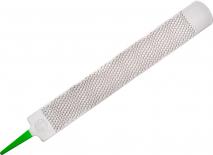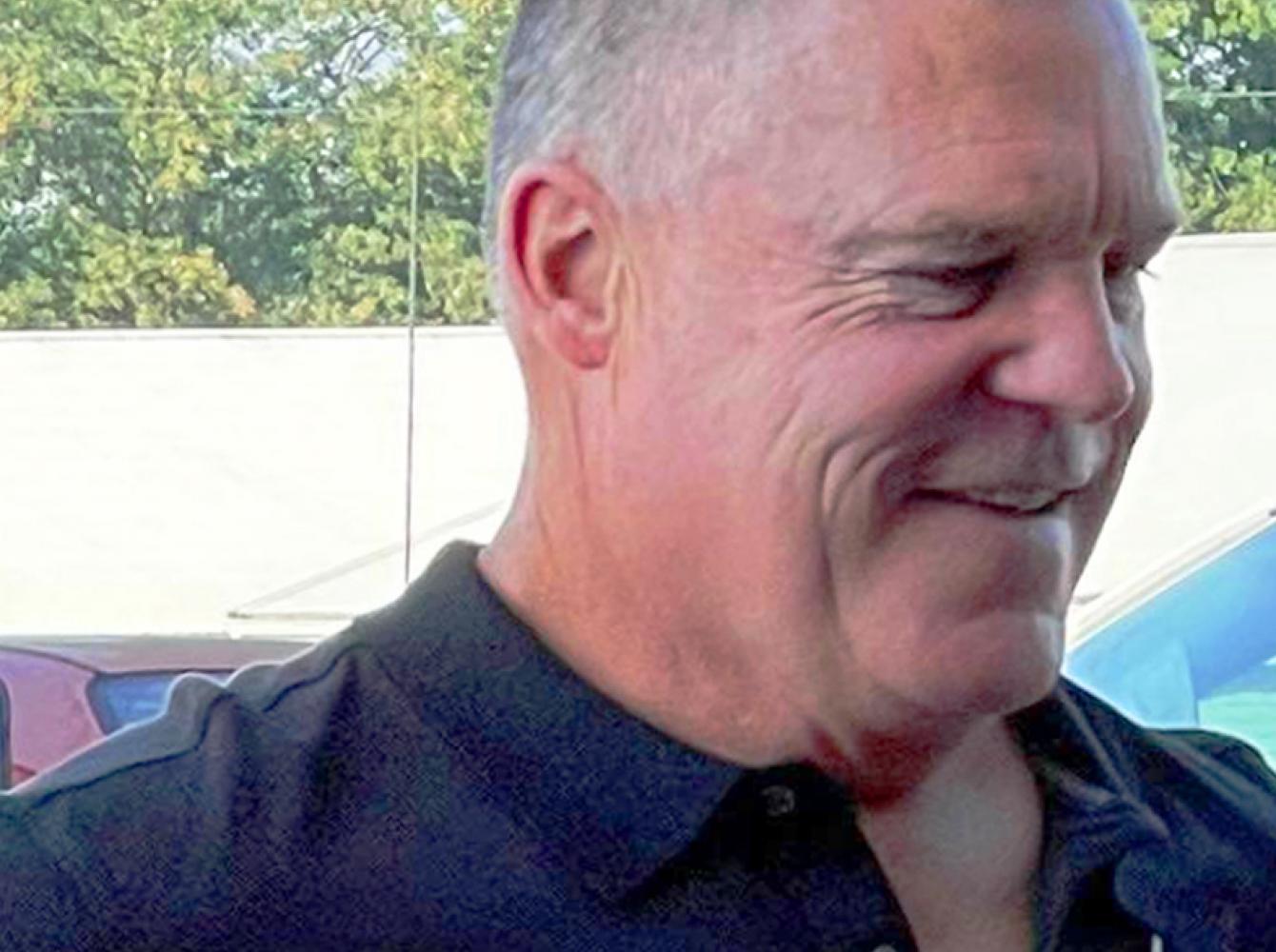
Chris Beymer, Sr.
Look inside the formidable Job of a racetrack farrier. See what it takes to be part of a Kentucky Derby winning team.
Stay out of the way of a horse.
Chris Beymer, Sr. has been serving the Kentucky racetrack industry for nearly 40 years. “There are some race farriers that follow the horse owner and travel a lot. I work on the horses at the track, so all of my work is local—within a 30-mile radius. With help, we serve around 170 racehorses plus a bunch of farm horses on top of that.” Speaking to Chris, you’ll quickly learn that the life of a racetrack farrier is demanding. During summer months, it typically requires being at the track 7 days a week. Chris says, “You can’t put off a horse that is going to race that day.”
From Foals to Champions
What sets Chris apart from many racetrack farriers is that on top of shoeing racehorses, much of Chris’ time is spent with newborns. “We see the horse through their whole life cycle, from foals, to racehorses, to mares. As a foal is getting ready for sale, we’re knocking off their hoof points at 10 to 12 days old to implement breakover. In 60 to 90 days, their ankles will set, so we’re shaping the hoof, making sure the angle of the foot is right, and correcting the alignment of the toe with set- tings every two weeks.” Chris’ motto is to stay out of the way of the horse. “Looking at the shoe wear tells me a lot. I let the foot tell me what to do. I make sure the foot is always laying flat for racehorses.” Over the course of his career, he finds satisfaction in seeing the foals grow up into successful competitors. His favorite, Winning Colors, became a Hall of Fame champion thoroughbred and one of only three fillies to ever win the Kentucky Derby.
Entering the Racetrack
Chris’ career in racing started by accident. Trying to avoid a boring family vacation at age 11, he convinced his mother to let him stay a week with his great aunt, and rode along with her farrier husband, Greg Lynch. This experience extended into 4-H where he trimmed horses. After graduating Kentucky Farrier School in 1984, Chris was able to work for David Nadeau and learned from track experts, Jackie Thompson and Glenn Greathouse. “Coming out of school, I knew enough to be dangerous. Because I thought I knew something, I made lot of mistakes. Sometimes I’d pray that the horse could walk off.” For this reason, Chris recommends a good education and apprenticeship. “An apprenticeship gives you enough rope to make a mistake, but not enough rope to hang yourself.”
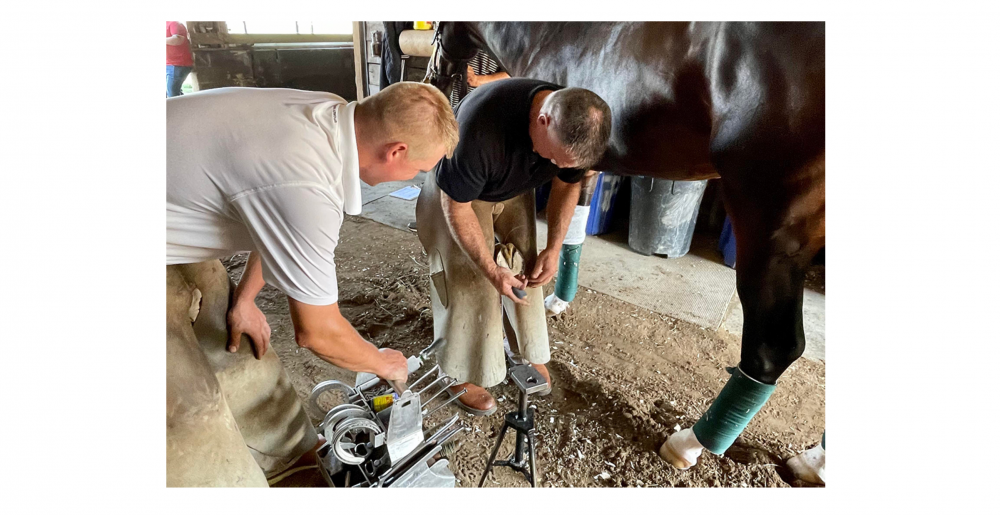
Passing Knowledge
So much of the farrier tradition is passing the wisdom of older farriers onto the next generation. “I believe farriers need to be mentors and share their knowledge.” Chris isn’t worried about giving away insights to younger farriers that could be competitors. “A young person isn’t going to catch me. You can’t make up time.” For the last 10 years, Chris has been mentoring his son, Christopher, who decided to follow in his father’s footsteps. “I’m the most fortunate guy in the world. I get to spend the biggest part of my day with my son.”
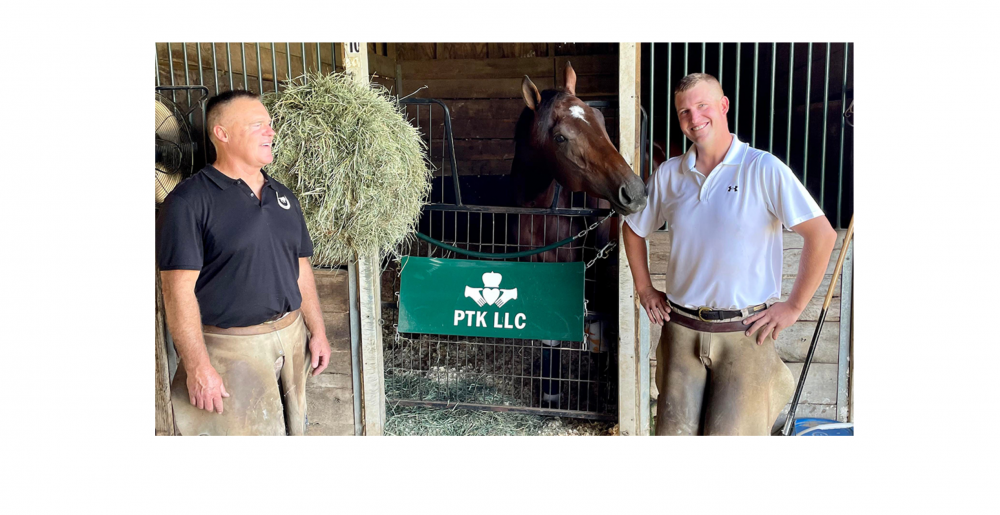
Product Demand
Because they never reset race plates, Chris and Christopher go through a lot of product. In a single month, they can shoe around 250 horses, setting roughly 1,000 shoes, and driving 6,000 nails. With so many horses and products, the Beymers rely on their Mustad representative, Rob Logsdon, for the latest product news. “Rob is very knowledgeable because he was a horseman himself. He really listens and wants your honest feedback. He gets new product in your hands to try out. Rob intro- duced me onto St. Croix Forge Concorde Aluminums. I love their hinds. They are a home run. The nail holes are punched deeper and that saves the wall of the hoof,” says Chris. His go-to nail is the Capewell 3.5 Race Nail. It’s a slim blade shaft with a city head. “They drive further up the hoof and holds better than other brands.” When it comes to rasps, the dynamic duo now only use the green tang, Heller eXceL Legend. “It’s good for wet and dry conditions, and we use it on the foals, mares, and every horse in between.” Christopher has noticed how the products from the Mustad family of brand have evolved, even within the last decade. “Products today are more efficient. The shoes have a better shape and are thicker. They are easier to use.”
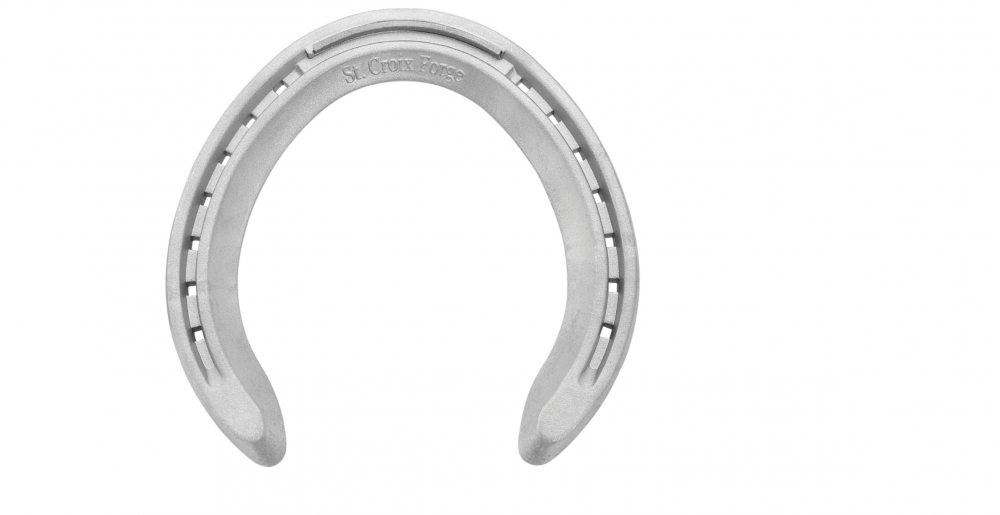
St. Croix Forge Concorde Regular Toe Hind
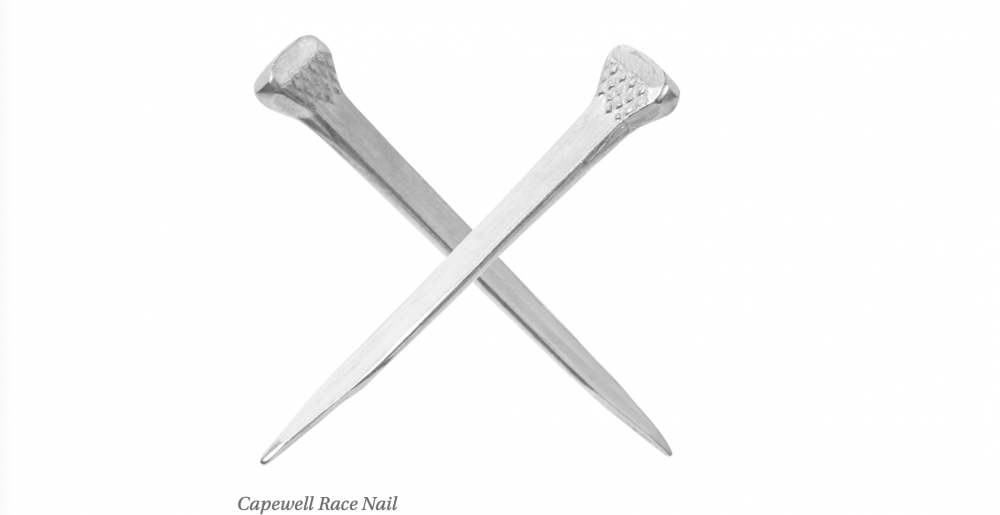
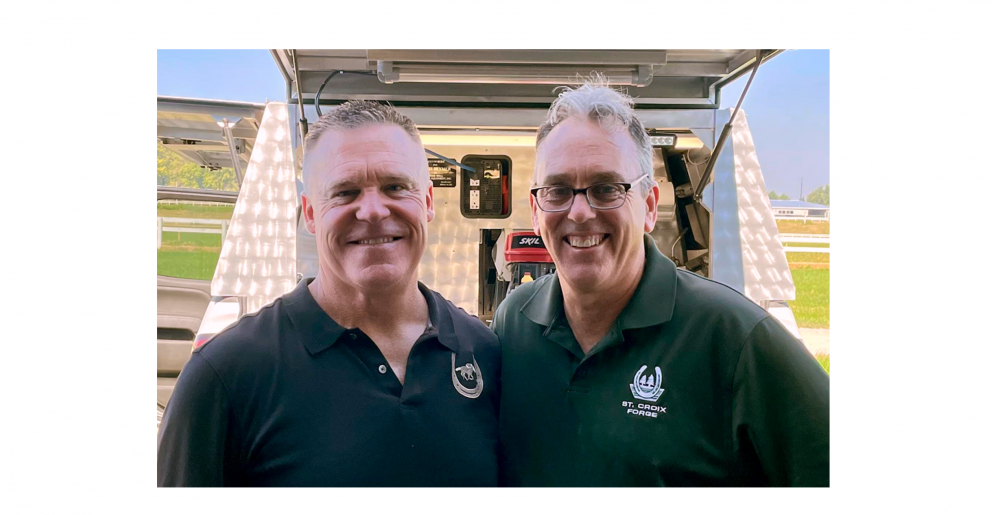
Benefits of Being a Farrier
If you ask both Chris and Christopher what they likes best about being a farrier, Chris will say it’s the freedom to set his own hours and be his own boss. Christopher says that as long as it keeps paying the bills, he won’t need to get a real job.
